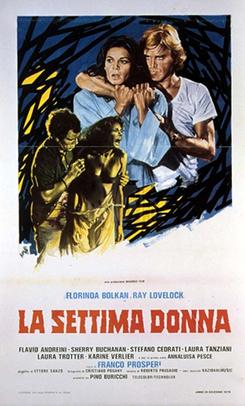| The Last House on the Beach | |
|---|---|
 | |
| Directed by | Franco Prosperi |
| Screenplay by |
|
| Story by | Ettore Sanzò [1] |
| Produced by | Pino Buricchi [1] |
| Starring | |
| Cinematography | Cristiano Pogány [1] |
| Edited by | Francesco Malvestito [1] |
| Music by | Roberto Pregadio [1] |
Production company | Magirus Film [1] |
| Distributed by | Magirus |
Release date |
|
Running time | 85 minutes [1] |
| Country | Italy [1] |
| Box office | ₤25.4 million |
The Last House on the Beach (Italian : La settima donna, also known as Terror and The Seventh Woman) is a 1978 Italian rape and revenge-thriller film directed by Franco Prosperi.
Contents
The American title refers to Wes Craven's The Last House on the Left , and Alexandra Heller-Nicholas stated how "combining the nunsploitation subgenre with rape-revenge, the film deviates plot-wise from The Last House on the Left substantially, but arrives at a similar ethical conclusion". [2]
It was argued that the final scene of the movie inspired the final scene in Quentin Tarantino's Death Proof . [3] [4] [5]